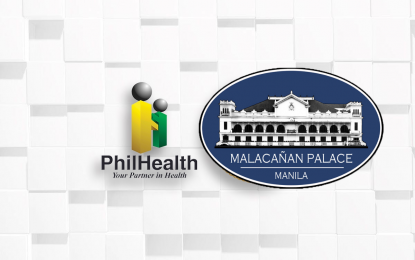
MANILA – A lawmaker on Friday said reforming health care, particularly the national health insurance system, should be among the top priorities of the incoming administration.
Albay 2nd District Rep. Joey Salceda stressed the need to introduce systemic reforms to the Philippine Health Insurance Corporation (PhilHealth) following the state insurer’s recent increases in its mandatory premium contributions for overseas Filipino workers (OFWs), reaching as high as PHP38,400 per year.
“For OFWs, it’s too expensive. And the question is very simple: what do they stand to gain from PhilHealth contributions when they can’t go to Philippine hospitals abroad?” Salceda said in a statement.
Salceda said he would be refiling a proposal on the comprehensive overhaul of the whole health insurance system in the next Congress.
“I hope to work with the next Secretary of Health and [incoming] SOF (Secretary of Finance Benjamin) Diokno on reforming PhilHealth. I do hope that reforming health care is among those on top of President BBM’s (Bongbong Marcos) list,” he said.
House Bill No. 7570, or the PhilHealth Reform Act, proposes to exempt OFWs, and bill minimum wage earners only PHP100 in monthly premiums.
Salceda’s bill proposes reforms in the collection system, management of the reserve fund, distribution and verification of claims and benefits, and governance.
Under the bill, the premium contribution scheme is made more progressive by linking the income tax rate with a premium contribution.
“We are tying the premium contribution to income and are ending the income ceiling system. Under the old scheme, the more you earn above the ceiling, the less you pay as a share of income. This is of course not progressive. We are improving the system by linking it with income,” Salceda said.
The bill, he said, would lift the income cap so that the rich will pay significantly more, while the average worker will pay significantly less.
The bill also seeks to reform the PhilHealth governance structure by making the Secretary of Finance the Chair of the Board.
Salceda noted that as an insurance and investment agency, PhilHealth needs the same caliber of management in the Government Service Insurance System.
“GOCCs (government-owned and controlled corporations) under the Secretary of Finance also seem to be better governed than other GOCCs,” he said.
To prevent fraud in the reporting of cases, the bill mandates the creation of the national health database of all claims and benefits requested from and granted by PhilHealth.
The one-patient, one-record principle will be followed, and an independent audit of PhilHealth shall be required.
During his campaign, President-elect Ferdinand “Bongbong” Marcos Jr. said he will push for family-based health insurance to make sure Filipinos of all ages will have access to basic health care services.
Marcos said he will “redesign” the operations of PhilHealth to ensure the fast-tracking of funds disbursement.
“Sa aking palagay, dapat pagtibayin iyan at mabigyan ng health insurance lahat dahil kaya naman gawin (I think we need to further strengthen that and provide insurance for all, because it can actually be done),” Marcos said.
He said he will boost the concept of the rural health unit (RHU), wherein a small clinic will be built in every village or clustered village, to be visited by doctors, nurses, and midwives at least three times a week.
“Ibaba natin ang (Let’s bring down the) health care system,” he said then.
Marcos said the concept of revitalizing the health care system will improve the hospital care capacity wherein people needing critical medical intervention will have easy access to hospitalization and are well-provided with medical insurance.
Those with mild cases can be treated within RHUs, he added.
Marcos also backed the full implementation of Republic Act No. 11223 or the Universal Health Care Act law amid the Covid-19 pandemic and promised to push for specialty hospitals and tertiary level hospitals in underprivileged communities.
The Universal Health Care Act mandates the institutionalization of health technology assessment as a fair and transparent priority setting mechanism that shall be recommendatory to the Department of Health and PhilHealth for the development of policies and programs, regulation, and the determination of a range of entitlements such as drugs, medicines, pharmaceutical products, other devices, procedures, and services.
Members of the Makabayan bloc in the House of Representatives have filed a joint resolution calling for a suspension of the hike on premium rates.
"[The increased premiums will] equate to higher income deductions for wage and salary workers who are struggling with nonstop price hikes of basic goods and services," the Makabayan lawmakers said. (PNA)
